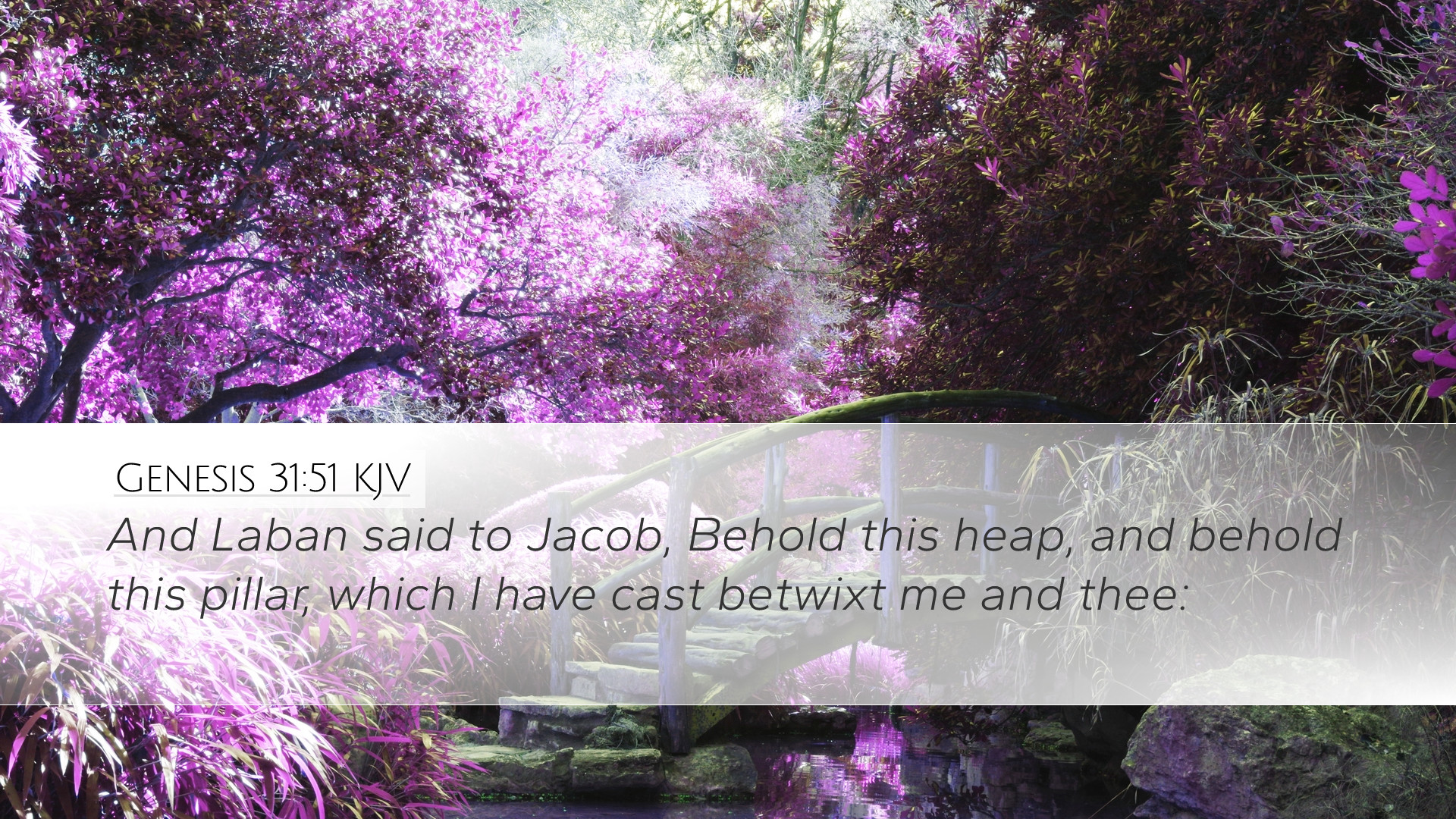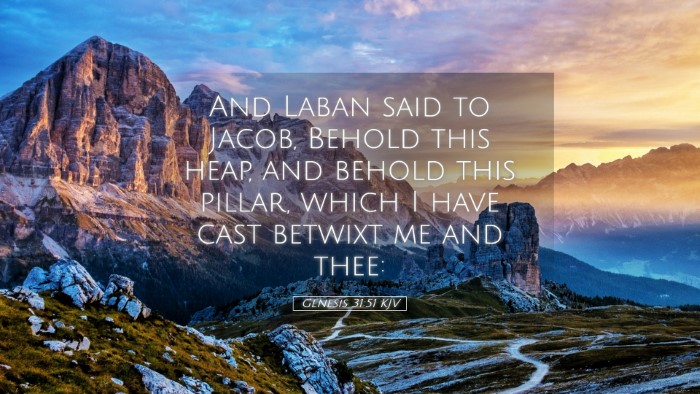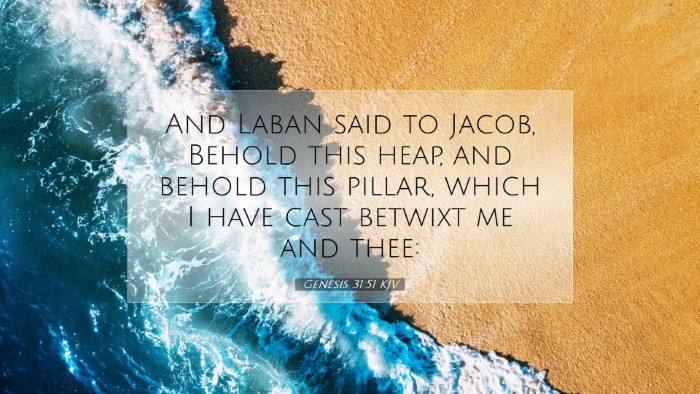Commentary on Genesis 31:51
Verse Interpretation: Genesis 31:51 states, "And Laban said to Jacob, 'Here is this heap, and here is this pillar, which I have set between you and me.'" This verse marks a significant moment of covenant-making, articulating the tensions between Jacob and Laban, and it serves as a pivotal point in their relationship.
Contextual Background
The narrative leading up to Genesis 31:51 is crucial for understanding the dynamics between Jacob and Laban. Jacob, after years of servitude and tension, decides to leave Laban's household. This decision ignites conflict, leading to a confrontation that results in the establishment of this boundary marker.
Insights from Matthew Henry
Matthew Henry emphasizes the importance of the heap of stones as a boundary. He notes that Laban’s recognition of the heap symbolizes the end of their contentious relationship. This act of making a covenant was essential to protect Jacob from Laban's continued influence and to assure Jacob of God’s protection as he returns to his homeland.
Henry also highlights that the pillars signify a solemn promise. The act of naming the heap "Gilead" not only stresses its significance but also indicates the seriousness of their commitments. The physical markers are a reminder of their agreement before God.
Insights from Albert Barnes
Albert Barnes expands upon the significance of this covenantal act by explaining its implications for both parties. He states that these markers would serve as a testament to their agreement and a warning against either party violating this commitment.
Barnes also points out that the interaction reveals Laban's desire to maintain some connection with Jacob, despite their conflicts. The covenant highlights mutual respect, which, despite previous grievances, signifies a recognition of one another's rights and boundaries.
Insights from Adam Clarke
Adam Clarke delves into the linguistic and cultural implications of this moment, explaining that the terms used to describe the heap and the pillar are rich with meaning in the context of ancient Near Eastern customs. He argues that this act of covenant-making encapsulates an elemental aspect of social contracts in their culture: the embedding of relationships in physical landmarks.
Clarke also emphasizes the emotional undertone of this scene. Jacob’s transition from servitude to autonomy is marked not only by the act of leaving but by establishing a firm boundary—both emotionally and physically—with Laban.
Theological Reflections
This passage speaks profoundly of God’s providence and guiding hand. The boundary set forth in Genesis 31:51 represents protection over Jacob’s life and family as he embarks on a journey to fulfill God’s promise. It juxtaposes human conflict with divine oversight, a theme prevalent throughout Scripture.
Furthermore, it serves as a theological reflection on the nature of agreements. Covenants in Scripture are significant, signifying mutual obligations that align with God's covenant with humanity. Jacob's commitment to God and to maintain a peaceful separation from Laban reflects a desire to walk in God's ways as he progresses towards his destiny.
Practical Applications
- Understanding Boundaries: This verse prompts reflection on the necessity of establishing healthy boundaries in relationships, particularly when navigating difficult situations.
- Covenantal Relationships: The dialogue illustrates the sanctity of commitments and the importance of honoring one's word in both secular and spiritual contexts.
- God’s Guidance: In times of strife and uncertainty, believers are reminded of God’s direction and the importance of seeking His wisdom as we establish relationships and make decisions.
Conclusion
Genesis 31:51 encapsulates an essential moment in the patriarchal narrative, representing not just the end of Jacob's servitude but the beginning of his own legacy as he ventures towards the fulfillment of God's promises. Insights from Matthew Henry, Albert Barnes, and Adam Clarke provide valuable perspectives in understanding the implications of this verse, reinforcing its significance for modern readers, pastors, and scholars alike.


